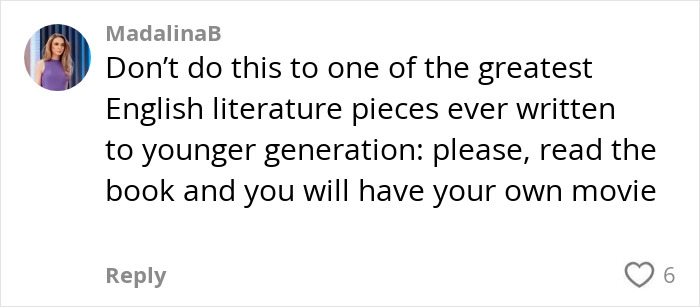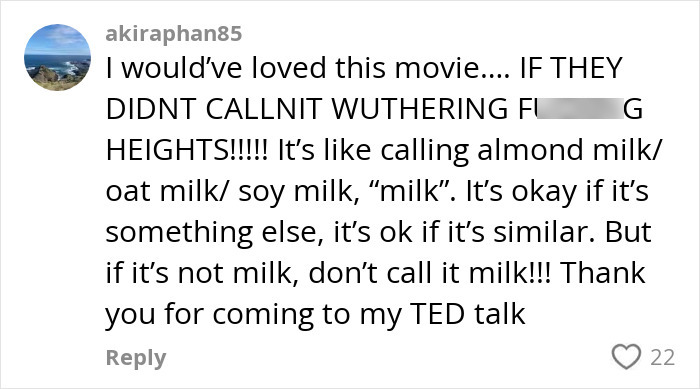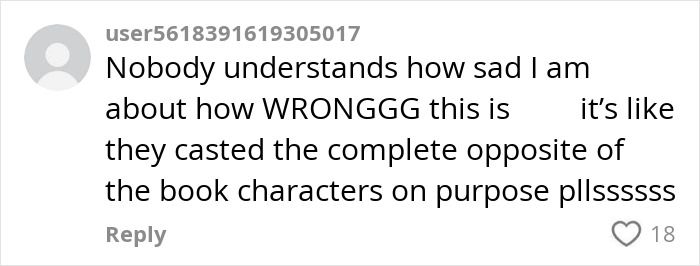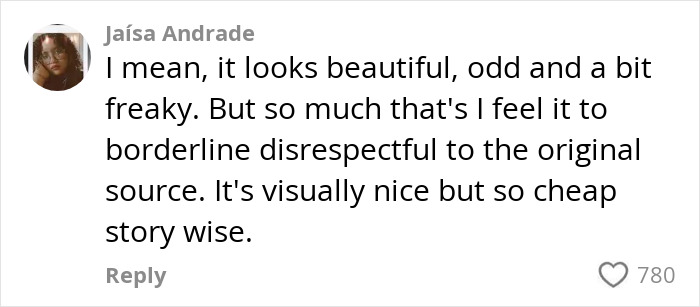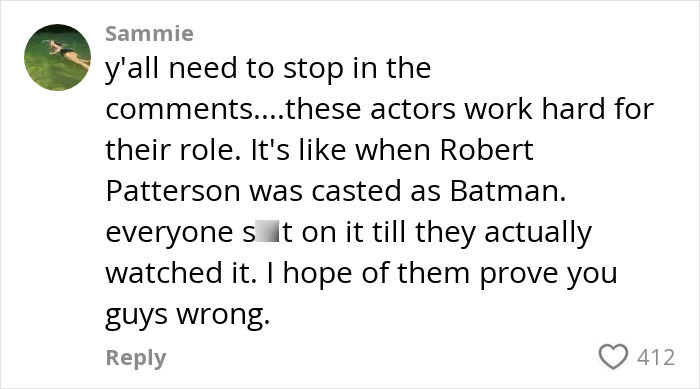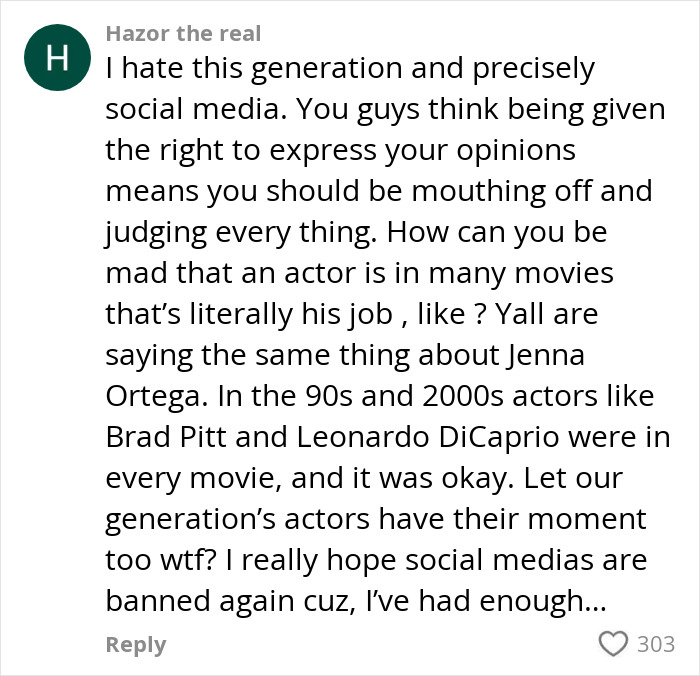Ever since the trailer for the upcoming remake of Emily Brontë’s classic Wuthering Heights dropped in September 2025, it sparked a heated backlash online.
The latest remake features some of Hollywood’s biggest stars, including Margot Robbie and Jacob Elordi in the lead roles.
Netizens criticized the film’s casting choice for its “misrepresentation,” highlighting major adaptation issues, including whitewashing and the overly “erotic” portrayal of the beloved text.
“I will be complaining about Wuthering Heights for the foreseeable future as the very existence of a white Heathcliff offends me,” commented one social media user.
The new film adaptation of Wuthering Heights is set to release in theaters ahead of Valentine’s Day 2026
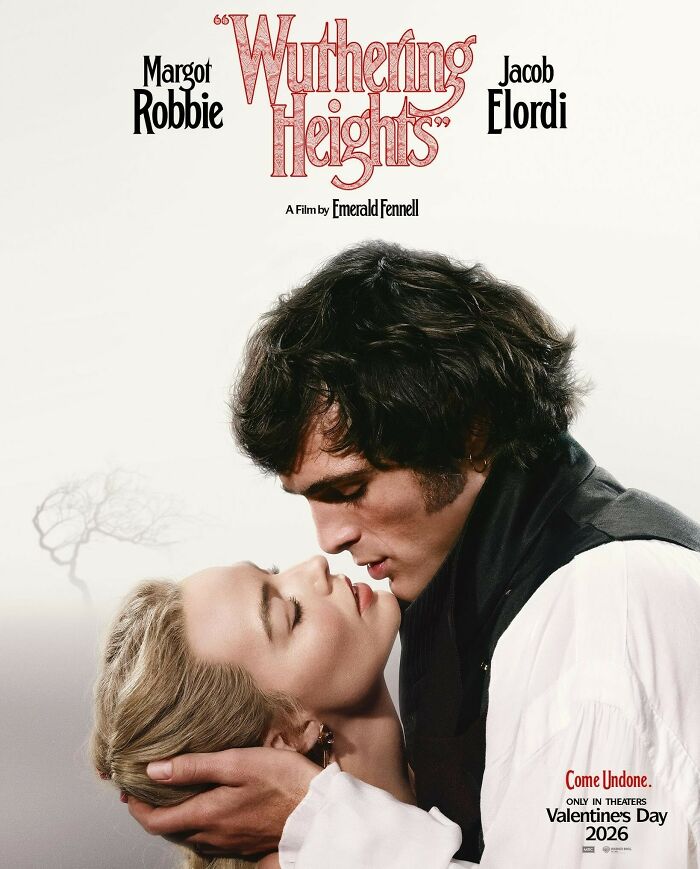
Emerald Fennell, known for briefly starring in hit films like Barbie and directing Saltburn, both released in 2023, is the director of the adaptation of the 1847 Gothic novel.
Notably, Margot starred in Barbie, while Jacob appeared in Saltburn.
In the upcoming movie, the 35-year-old actress will grace the big screens as Catherine Earnshaw, with Elordi portraying Heathcliff.
The minute-and-a-half trailer showcased a provocative relationship between the two leads, set against the backdrop of Charli XCX’s Everything Is Romantic from her 2024 album Brat.
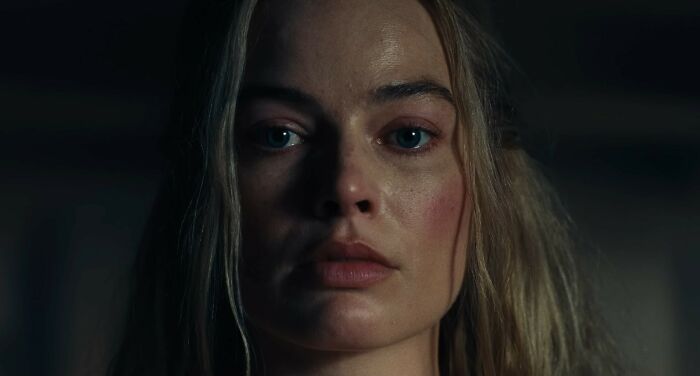
Social media users expressed displeasure over the casting of white actors, the use of modern music and fashion, and the overtly “erotic” portrayal of Catherine and Heathcliff’s relationship, which is only “subtextual in the novel.”
Judging by the short clip, many felt that the upcoming film was not “a modernisation, [but] it’s a misrepresentation.”
One user criticized the trailer, writing, “Heathcliff is not white… Catherine is supposed to be a teenager at OLDEST, and Wuthering Heights is not some booktok erotica bulls**t.”
Margot Robbie and Jacob Elordi star as Catherine Earnshaw and Heathcliff, respectively, in the upcoming film
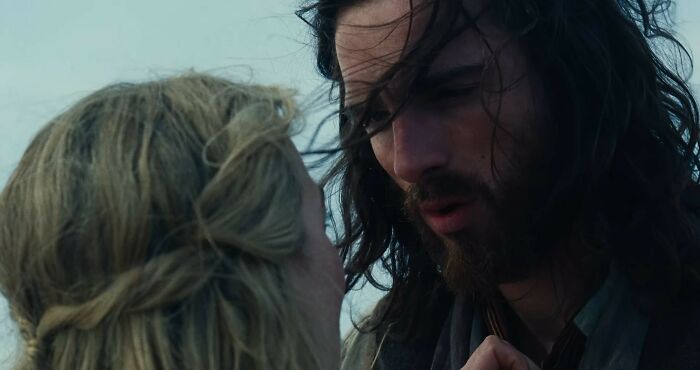
Shedding light on why the filmmakers might have made the changes in the adaptation, Professor Thomas Leitch, a Professor of English at the University of Delaware, shared with Bored Panda that “literal adaptations of classic novels are exceedingly rare, maybe impossible.”
According to the Professor, as filmmaking involves significant money at stake, “most filmmakers are a lot more interested in making money, or at least not losing money, than in remaining faithful to a novel that’s over 150 years old.”
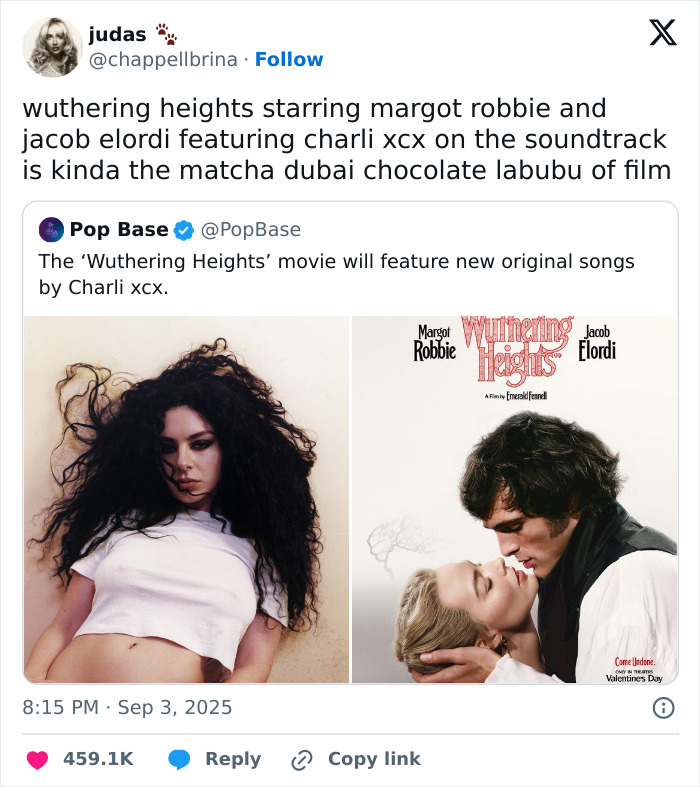
“The s**ual implications of the trailer certainly make it seem to promise that the film it heralds will be more s**ually provocative than Brontë’s novel. But these implications don’t stand out from those of hundreds of other movie trailers… Some audiences have a greater appetite for provocation than others.”
With Fennell’s modernization choices and her name prominently featured in the trailer credits, it’s clear the film is designed to resonate with contemporary audiences rather than “Brontë’s original audience.”
“Filmmakers probably wouldn’t be making another Victorian period movie if they didn’t think the material already had some relevance to modern audiences,” Professor Leitch added.
The 2026 film faced intense criticism from fans of the original text, who labeled it a “whitewashed romance”
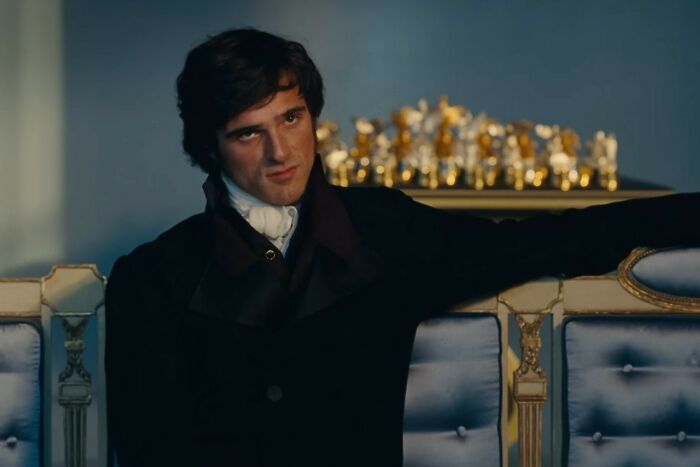


Beyond the evident changes made to Brontë’s novel, many fans voiced disappointment over the casting of older actors, particularly Robbie, who portrays Catherine Earnshaw, a character originally described as 18 in the book.
One critic wrote, “Margot Robbie 40 years old playing a character that d**s at 18… and pasty Jacob Elordi with original music by Charli XCX… BURN IT TO THE GROUND.”
However, Victorian literature expert Monica Cohen, a Term Lecturer in the Department of English at Columbia University, dismissed the ageism backlash, telling Bored Panda that Robbie’s casting was fitting.
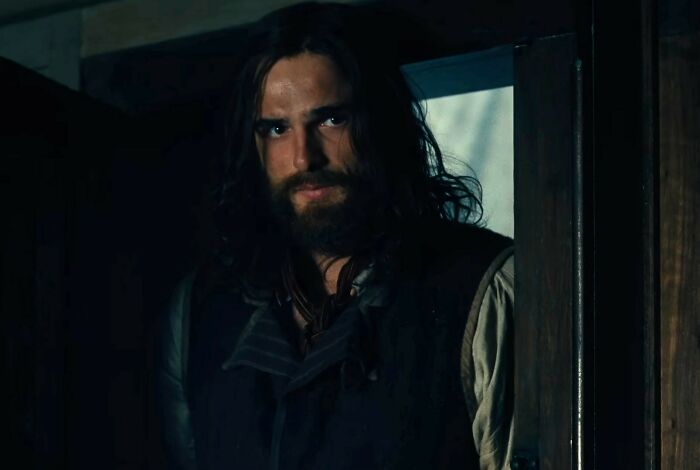


“Today’s Margot Robbie probably looks a lot closer to a Victorian eighteen-year-old than to a Victorian thirty-five-year-old!”
Professor Leitch echoed this sentiment, pointing out that casting older actors to play younger roles has been a Hollywood practice for “a hundred years.”
“Most audiences have grown so accustomed to this practice that the ones who complain about it even before a film is released may just be looking to pick a fight with the newcomer.”
Literature experts straight-up dismissed the ageism backlash over Margot’s casting, stressing that the choice was right on point
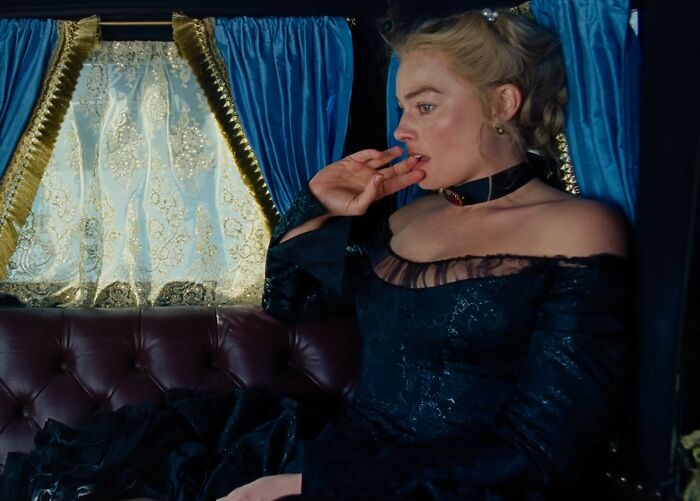
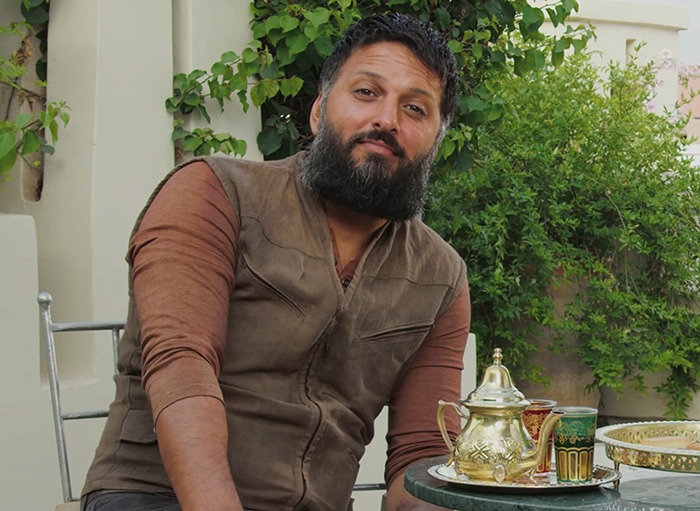
Image credits: Sky TV/YouTube
Defending her casting choice, the film’s casting director, Kharmel Cochrane, recently said during a public interview that casting “really doesn’t need to be accurate. It’s just a book.”
“That is not based on real life. It’s all art,” she added.
However, while experts had no issue with 35-year-old Robbie’s role, Elordi’s casting was widely regarded as a “missed opportunity.”
Professor Cohen noted that Heathcliff was originally from “Liverpool, a city historically connected to the African slave trade, so scholars have speculated that he could be literally Black.”
@itsyourfilmsis Why the quotation marks? 👀 I have a theory… Drop your thoughts on Emerald Fennell’s new “Wuthering Heights” trailer in the comments below! #wutheringheights #wutheringheightstrailer #booktok #movie #theories @Wuthering Heights Movie @Warner Bros Pictures @Warner Bros. ♬ A.Vivaldi The Four Season, Summer Presto; Tempo Impetuoso – AllMusicGallery
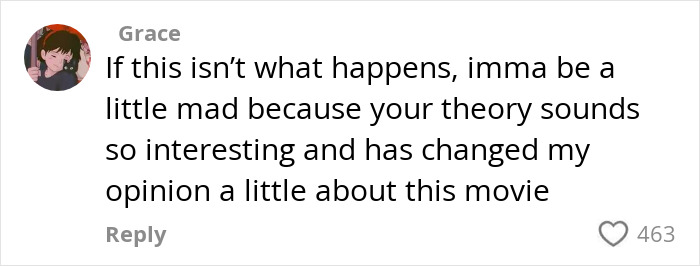
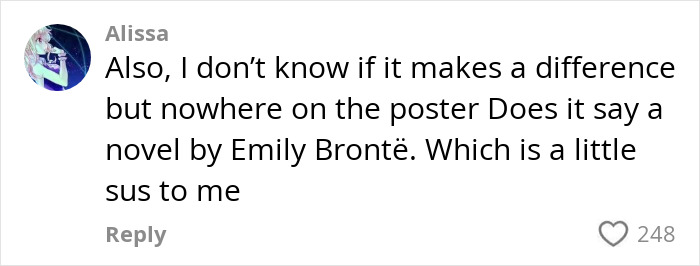
“That he is clearly represented in the novel as somehow other opens up all sorts of interesting casting options, so Elodi seems like a missed opportunity.”
“So they made Heathcliff white… It’s truly horrendous & insulting to the source material,” commented one user online.
Meanwhile, in contrast to a white actor playing Heathcliff, Pakistani-British actor Shahzad Latif has been cast as “the novel’s white, blonde, and rich Edgar Linton.”
Casting director Kharmel Cochrane defended her decision, stressing that Wuthering Heights “is just a book” and not “real life”
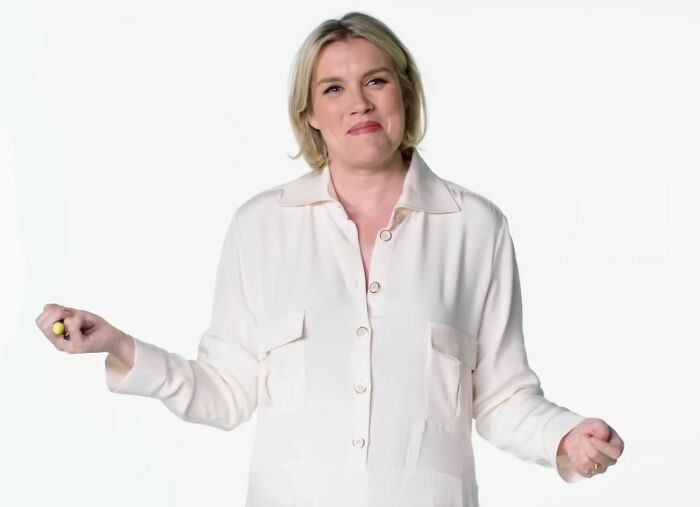
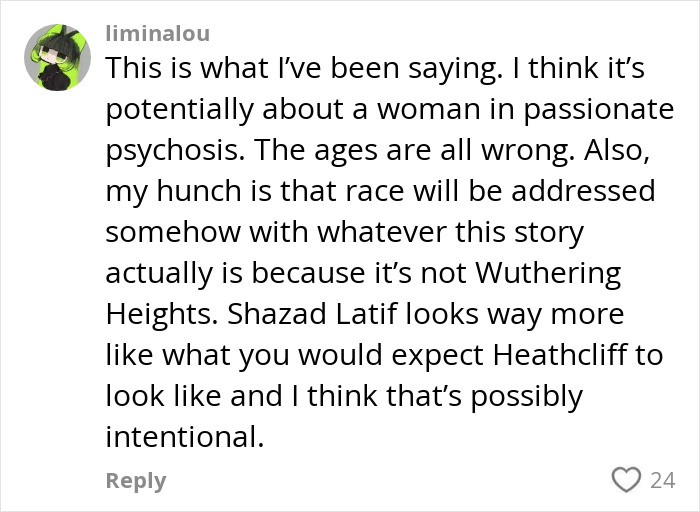

Professor Leitch described it as a “conscious choice,” perhaps intended to “provoke audiences into challenging their assumptions about the relations between race, s**uality, social status, and power,” or simply as an example of “race-blind casting.”
Meanwhile, Professor Cohen appeared satisfied with the overall “diverse casting.”
“Those works allow many of the values and aspirations of the period (if not their realities) to achieve representation and allow us to imagine ourselves in these iconic works. I have no problem with diverse casting, even if it is not always historically accurate or loyal to the novel.”
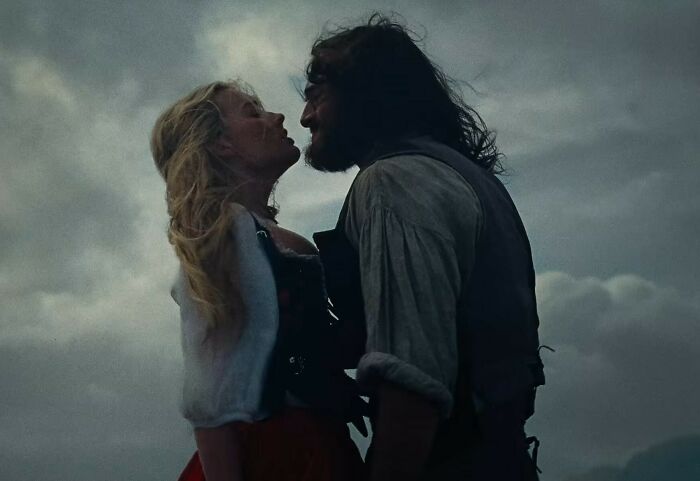

According to a theory by content creator Jamie McAleney, shared shortly after watching the trailer, the film’s title was in “quotation marks.”
Jamie shared in a TikTok video that she thinks the remake is not a word-for-word adaptation of the novel but instead will portray Margot as “just a fellow yearner, like us, dissociating and daydreaming of her Heathcliff as a way to escape her normal life.”
How accurate her theory is remains to be seen, as the film is scheduled for release in theaters in the United States and the United Kingdom on February 13, 2025.
Watch the controversial trailer here:
Image credits: Warner Bros./YouTube
“I hope filmmakers in the future are interested in doing more faithful, less provocative adaptations of classic literature,” expressed one disappointed netizen


